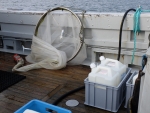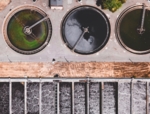
Combating oil spills - biosurfactants can stimulate microbial oil degradation
Oil spills from drilling platforms and tankers cause environmental pollution and a loss of biodiversity. Researchers at the University of Stuttgart, among others, are now using biosurfactants to improve the management of oil spills: their latest research shows that biosurfactants lead to better microbiological degradation of oil components in seawater compared to conventional dispersants.
https://www.biooekonomie-bw.de/en/articles/news/combating-oil-spills-biosurfactants-can-stimulate-microbial-oil-degradation